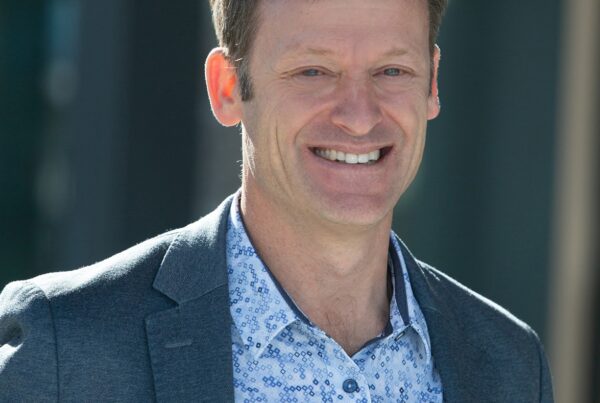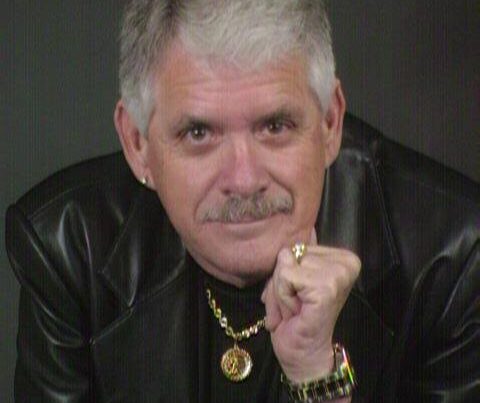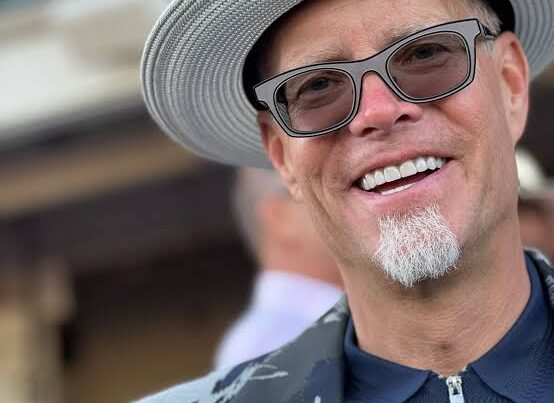Podcast: Play in new window | Download
Subscribe: RSS
How can we grow through difficult situations, like the COVID-19 crisis we are dealing with right now?
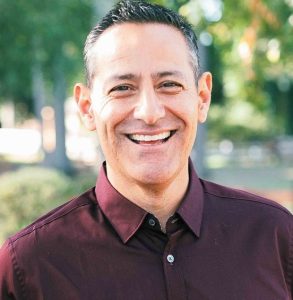
Bobby Herrera
Bobby Herrera is the author of The Gift of Struggle, a book about leadership and the life-changing lessons we learn through our struggles. He is also the co-founder and president of Populus Group – one of the fastest-growing HR services companies in the United States with annual revenue of $500 million and many Fortune 100 customers.
With a passion for building strong culture and communities through trust and storytelling, his leadership style is about empowerment, connections, and ensuring everyone has the opportunity to succeed.
Bobby grew up in a big family with parents who immigrated to America without much. While this is not an uncommon story, the leadership style and company culture that it inspired is. The belief that everyone deserves the opportunity to succeed is at the core of Bobby’s philosophy in business and in life.
Everyone has struggles and business leaders are no exception. Bobby’s passion is helping others understand how their individual struggles can help them connect with their communities and inspire other is what will ultimately transform their leadership style.
Bobby is a proud Army veteran and currently lives in Portland, Oregon with his wife and three children.
What We Discuss With Bobby Herrera In This Episode
- Why struggle is such an important part of success
- The difference between those who struggle and fail and those who struggle and succeed
- How build brand identity and cultural intentionality around your origin story
- Selecting the right people for your organization
- How to immerse new team members into your culture, purpose and narrative in the first week
- Leadership lessons from the best CEO you’ve never heard of
Episode Transcript Highlights
Embracing The Struggle
The one thing that always comes before transformation is the struggle. The long way is the shortcut. You must go through struggle, pain and suffering to get to wisdom.
We are intuitively a very insecure species, and so we look around and wonder, “Am I the only one that’s feeling this way? Am I the only one that’s getting the tar kicked out of me? Am I the only one that feels like they’re not enough?” Often we tell ourselves that narrative but everyone is going through something.
It’s okay to fall. You are going to fall; that’s how we learn. We know that but when we’re in the middle of it, that can be hard to see.
You have to be crazy to want to struggle, but you have to be even crazier to think that you’re not going to.
Go back to your marker events, write down what that struggle was, and then next to it, write down what it taught you. What gift did it deliver for subsequent chapters in your story? I’ll bet that you’ll put out some prized gifts that have served you very well.
One of the single most important parts of leadership is setting and encouraging potential.
Humility is the secret of the wise.
If the Bus Story had never happened for me, who knows whether or not I would have experienced something else that gave me purpose and identity, but that’s what Mr. Tegue gave me. He showed me that he wanted more for me than from me, which is a tremendous attribute in leadership.
The Beginning of Populus Group
The first five years after founding Populus Group were the most fun I never want to have again. We made so many mistakes and were dodging arrows like any other entrepreneur out there.
The second five years we experienced a good fortunate return on the first five years and things started to come together. Meanwhile the Bus Story was raging like an inferno inside me. It became the invisible force that drove me to start my entrepreneurial journey. But I made a big mistake in that I was the only person except for my brother and my wife that knew that story.
So I was this intense, passionate, and hard-charging leader who wasn’t burning the candle at both ends, I was looking for more wax. So there was an intensity about me that my company didn’t understand. They knew I was doing my best but no one knew why.
Becoming A Community
Ten years in, I finally found out that vulnerability is a core competency of leadership. So I mustered up the courage to tell that story. When I did, it changed everything. It started the transformation of my company becoming a community.
If you’re going to build an organization centered around conscious capitalism – building something that does good in the world – you have to go through that. You’re not actually building an organization, you’re building a community. The core is going to be that marker story that gives you energy, purpose and identity.
I ask people – tell me to your origin story. Why is it so important for you to make this journey ultra-successful? Dreams aren’t free – you have to make the economics work but put the profit aside. Find what makes your heart sing and why. Keep digging until you find it.
I was very fortunate. I knew what it was; I was just too afraid to tell the story.
As a leader, we have to give contribution to the people we’re responsible for. Up until that point, I hadn’t given them something to contribute to. So they didn’t know how to help me, and people do want to help you.
Intuitively, every single one of us wants to be part of something bigger than ourselves.
We exist (at Populus Group) because we believe that everyone deserves an opportunity to succeed. At the core of that is the Bus Story. I’m a sucker for the underdog. My motto is All Hail The Underdogs. We live to put the underdog on stage.
A Different Way of Hiring and Onboarding People
I think a lot of organizations unintentionally overlook 3 things that have a real impact on the strength of their culture, i.e. their brand and identity. The brand of their organization is a lagging indicator of the strength of their culture.
Most organizations hire, onboard and train. Intentional organizations that want to build something bigger than themselves, with a very intentional culture that is conscious about doing good in the world, select, welcome and develop. It’s a minor tweak, yet there’s a big difference.
Organizations that select, the first thing they do when they sit across the table from someone who wants to be part of their community – we ceremoniously do it – is flip over the resume. We don’t talk about a single thing on the front. We want them to take us back to the beginning. Tell us your story. We want to know what you believe and why you believe it.
That’s where we check the first box. Do they believe what we believe? Are they an underdog at heart? Do they want to be part of something bigger than themselves? Do they want to bring the Bus Story to life?
Everything we’ve built into our human systems connect back to the Bus Story, back to our culture, and back to our identity.
We welcome people in. When you welcome someone, it’s like welcoming them into your home. You get ready for them, you know they’re coming, and you lay out the welcome mat.
When else are you going to have someone join you at a higher level of engagement? So for one week, all we do is engulf them in the story we’re narrating. We have systems built around their entire welcome. They don’t do one single job-related activity in that first week.
They learn our culture code, they do a culture quiz, and they’ll call climbers. I don’t believe in the word employees, it doesn’t mean anything. We call our people climbers, so they’ll call climbers from across the country, answer questions and learn stories.
By the end of the first week they have so much context that when they do start those job-related activities, they know why they’re doing them and they know what we’re about. They’ve also built this network of supporters and reduced that anxiety that they felt starting a new job. So a welcome reduces anxiety verses onboarding which in most cases unintentionally increases it.
It would be naïve to think that they’re not saying to themselves (that first week), “Did I make the right choice? Am I at the right place for myself and my family?”
People have options. There’s a raging war for talent out there. It’s not going to get better anytime soon. As a matter of fact, let’s brace ourselves.
People are looking for contribution. They’re looking for a place where they can be part of something bigger than themselves. They’re challenging us as leaders to lead with more compassion and purpose, and I think it’s a great thing.
The selection and welcome process were developed because of things that annoyed me when I didn’t have a choice to change the game. I felt like people were basing who I was on what my resume said. That didn’t define who I was.
I created our welcome process around a couple of unfortunate onboarding experiences that I had in my professional journey.
The Gift of Struggle
I want to transform the way the world views struggle. I want them to see it as a source of empowerment, because it really is.
I do a lot of storytelling with kids and veterans. When I tell some of these stories, you can see the light bulb go off. “Maybe this was part of the plan.” They start making a mental list, “I’ve been through this and this…maybe I do have what it takes.”
That’s a great day for me. I have a mantra of “just one.” I just want to get one to see their life differently, so they can take control of that wonderful story that they’re narrating.
Episode Resources 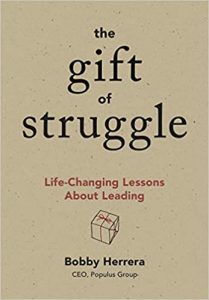
Connect With Bobby Herrera
- Website: https://bobby-herrera.com
- LinkedIn: https://www.linkedin.com/in/bobby-herrera-5781821
- Twitter: https://twitter.com/BobbyHerreraPG
- Facebook: https://www.facebook.com/bobbyherrera.pg
- Instagram: https://www.instagram.com/bobbyherrerapg
Listen on Apple Podcasts, Spotify, Pandora or Stitcher.
Did You Enjoy The Podcast?
If you like this episode let us know! Reviews for the podcast on iTunes are greatly appreciated. This helps us reach more entrepreneurs seeking to make a positive impact in the world. If you received value from this episode, it would mean so much if you could take a moment and leave your 5-star rating and review. You can do that by visiting here. Thank you! Together we can make a difference!
Additional Episodes You May Like
- 321: Dr. Jeffrey Spahn: The Evolution of Leadership in the Midst Of Crisis
- 320: Norman Wolfe: Transforming Your Business Into A Living Organization
- 313: Andrew Hewitt: Changing The Game Of Business For Good
- 280: Darren Virassammy: How To Become A Great Place To Work
- 264: Lucas Mack: Unleashing The Vulnerable Hero
- 031: Adam Edgerly: Transforming The Culture Within Your Organization








